I’ve become obsessed with baking bread. People have asked me whether it is just a phase and it has made me wonder. But I think that it is something that we’ll do forever. The process of kneading, proving, baking, carving, toasting and eating is becoming second nature. And the bread itself is getting more interesting, more consistent and occasionally experimental. When we go away on holiday I take the starter with me so long as we aren’t flying. And when we do fly, I just hope it survives the break in the fridge.
My regular loaf is a rye loaf mixed with strong white flour
with a handful of pumpkin seeds and occasionally some caraway. It’s really easy
and the fact that it is quite rye heavy makes it quite easy to prove and bake.
It’s a little stalwart. It’s neat and reliable. And it toasts beautifully. I
just use Dan Lepard’s Rye and Barley recipe from his Handmade Loaf book (250g
starter, 300g strong white flour, 200g rye flour, 300g water).
So when I got an email asking if I’d like to review a bread
baking book I was rather excited. Bread by Dean Brettschneider, published by Jacqui
Small is a very attractive book. The photography is stunning in a way that many
baking books are not. And the instructions from Dean Brettschneider are very
clear and authoritative. Although they differ at times from what I’ve learned
from Dan Lepard, they give you confidence that you are doing things right.
The first loaf that jumped out of me from Brettschneider’s book was his Dark German Rye Loaf. One glimpse of this Onyx loaf took me straight back to our communal
breakfasts in Sweden where we would slather sweet mustard on black rye bread
with a slice of Vasterbotten cheese and some smoked ham.
These dark breads, for me, are doughy nirvana. They go deep
where our English white sliced barely scratches the surface. They are the polar
opposite of baguette and speak to a completely different world view. A philosophy
of perseverance; resilience; slowness; hard graft; depth; gnarly character; and
satisfaction.
I followed the recipe to the letter and was rewarded with
the best loaf I have baked to date. It is fabulous fresh or even better toasted
with marmalade, smoked mackerel pate, slices of hard cheese or, heroically a
slice of salted butter to contrast against the darkness.
His trick is to soak rye flakes and sunflower seeds in hot water separately from the dough mixture. And to add cocoa to rye sourdough dough mixture which is surprisingly heavy on strong white flower. Grate in some carrot. Add some malt extract, some salt and some more water and then combine after a few hours of proving. It works like a treat. Just make sure you allow it to cool properly before giving in to carving it. This will allow the dough to 'set' and not tear when you carve it.
I’ve since experimented with replacing the warm water that
the grains are soaked in with coffee which has led to even darker breads with
even more flavour. If you do go down the coffee route, you need to add a bit of
extra malt extract or honey to counteract the bitterness. And Edwin inspired replacing the rye flakes with Dorset Cereal Muesli which worked very well too. The raisins and nuts made it a great breakfast loaf.
Dean’s white sourdough loaf recipe is also a corker. Where I’d
previously struggled with my dough sticking to the bannetons and less airiness
that I’d hope for, Dean’s recipe has yielded nothing but fluffy, loaves with
big bubbles and lots of flavour. One of his best tips is to make sure your starter has been greedily fed 8 hours before baking. I've found this has turbo charged my loaves.
If you are serious about baking bread, I can recommend Bread,
by Dean Brettschneider wholeheartedly.

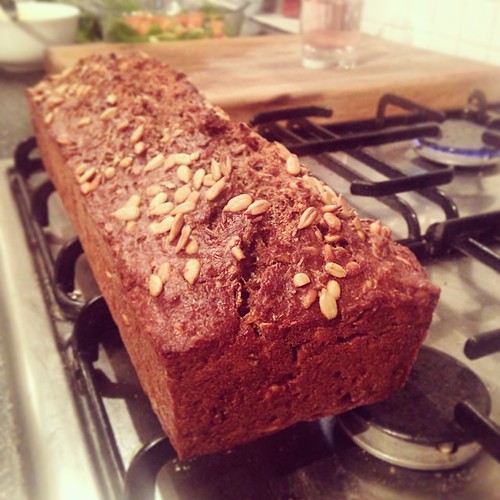
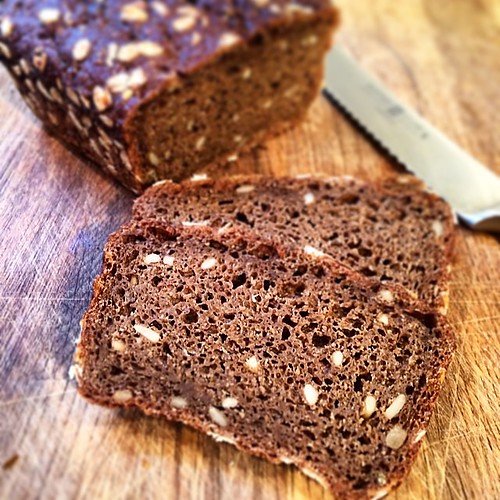
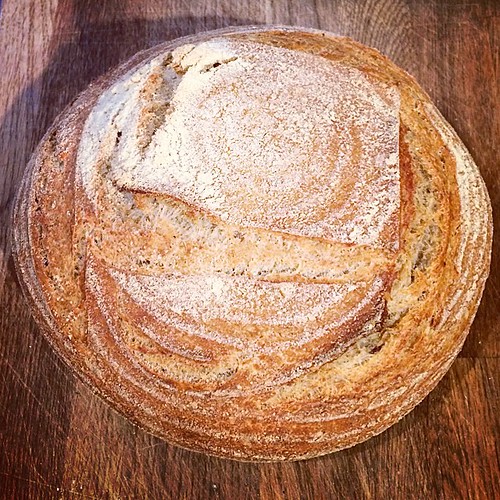
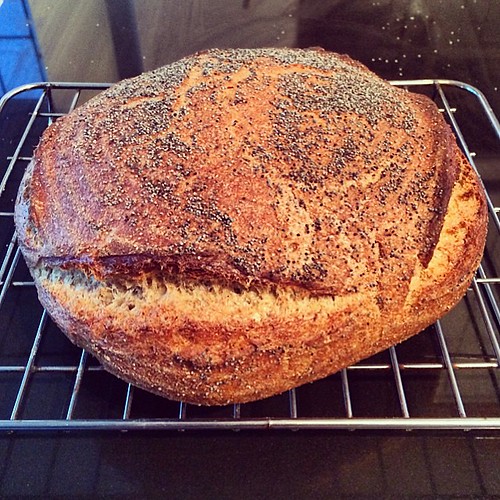
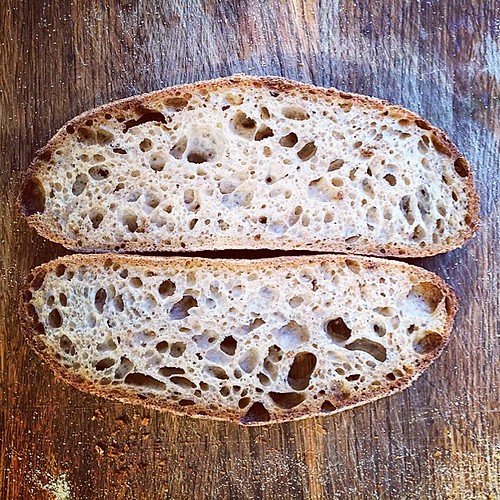
No comments:
Post a Comment